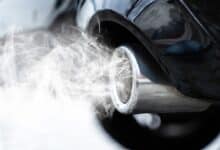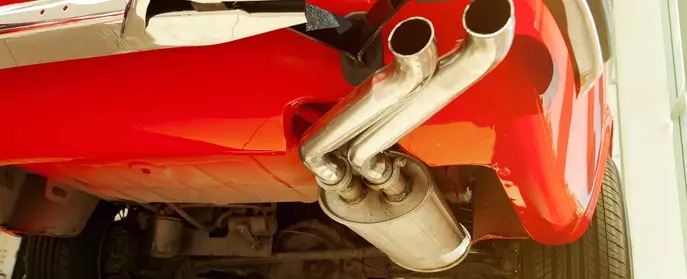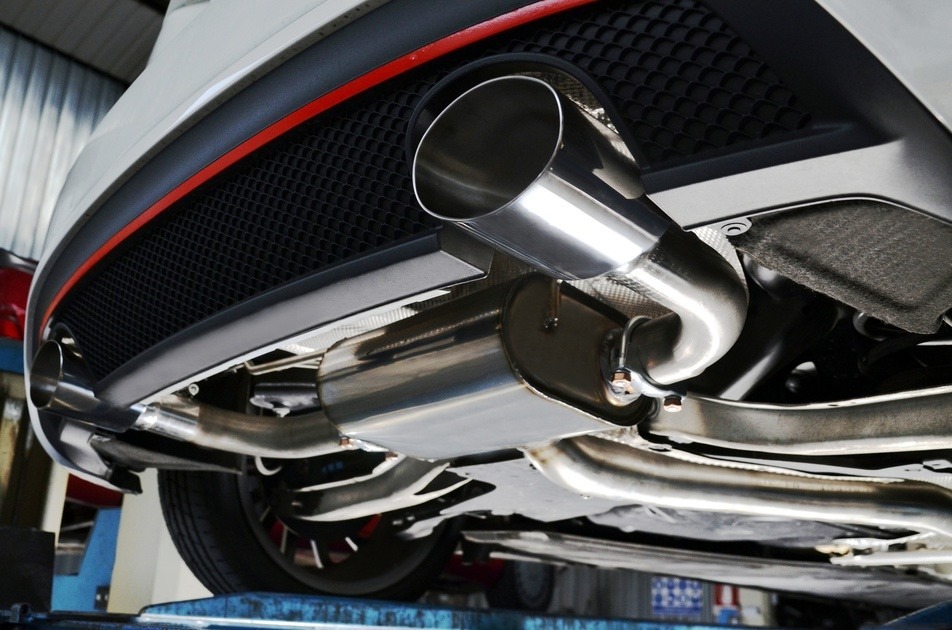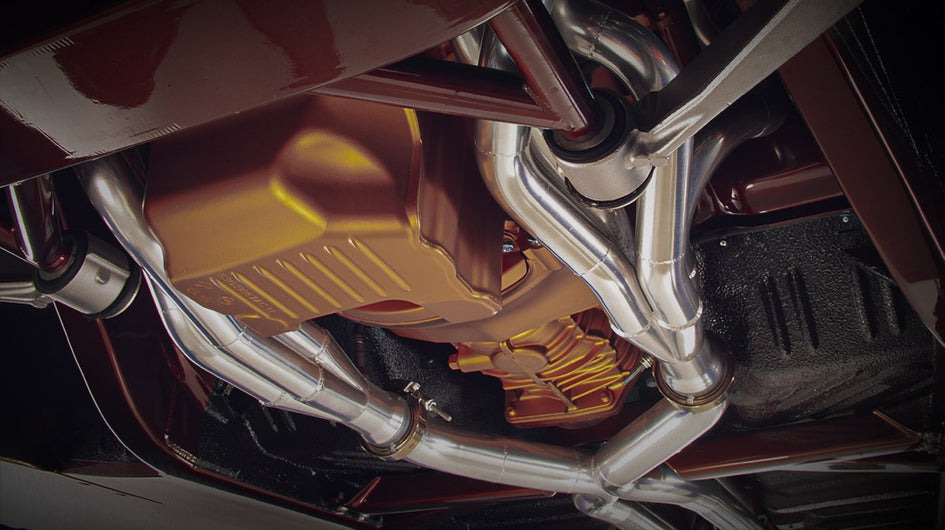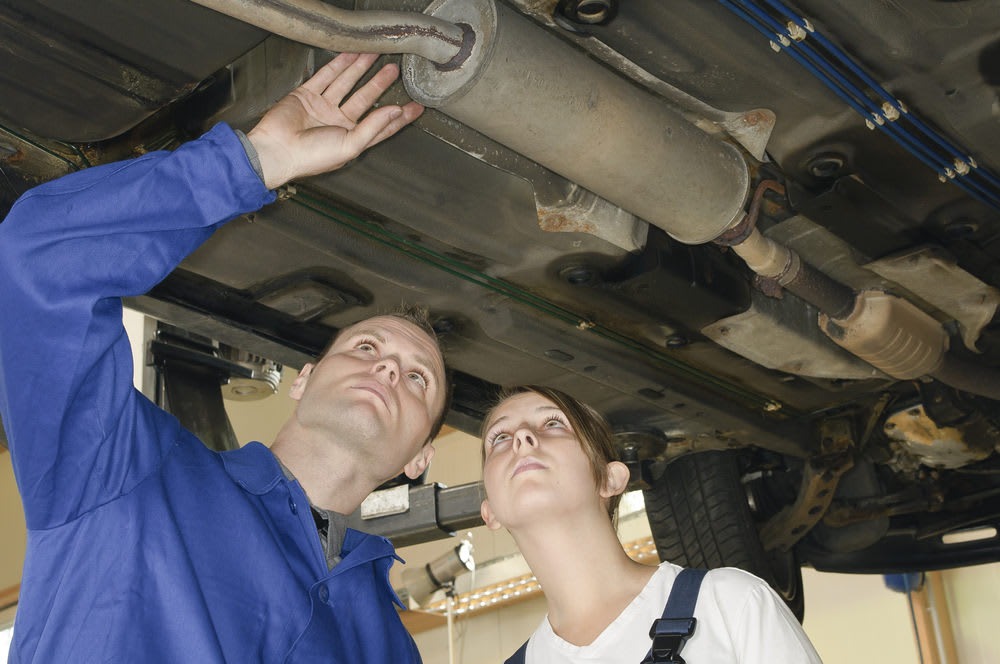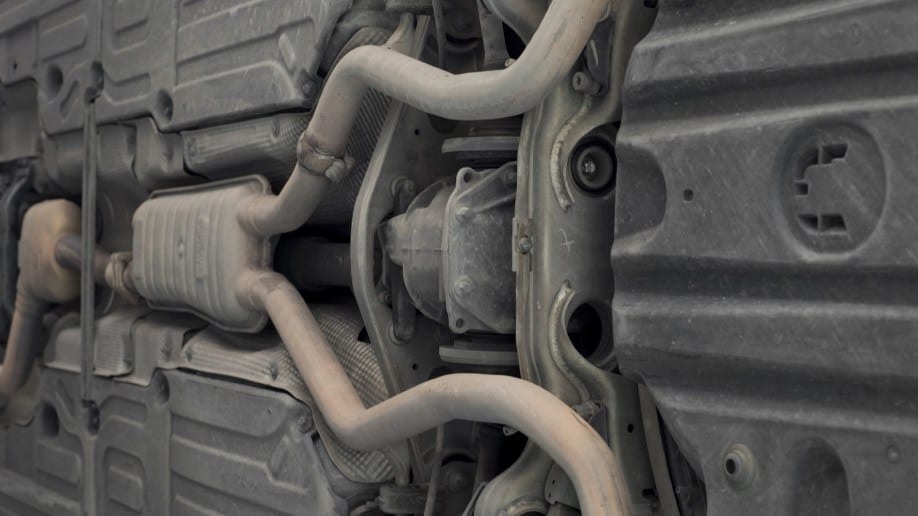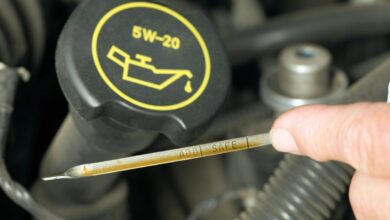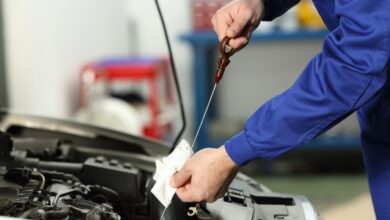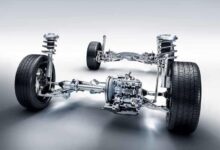The Ultimate Guide to Maintaining Your Vehicle’s Exhaust System

Your vehicle’s exhaust system plays a crucial role in performance, fuel efficiency, and environmental impact. This comprehensive guide is your go-to resource for mastering the art of maintaining your exhaust system. From routine inspections to addressing common issues like leaks and muffler concerns, we’ll explore the intricacies of keeping your exhaust system in peak condition. Dive into essential tips, best practices, and insightful techniques to ensure your vehicle’s emissions stay within limits while maximizing overall efficiency. Uncover the steps to enhance the longevity, performance, and environmental responsibility of your exhaust system with the ultimate guide to exhaust maintenance.

Contents
Understanding the Exhaust System
The exhaust system is an integral part of your vehicle that helps to remove harmful gases produced during the combustion process. It consists of several components working together to ensure the safe and efficient operation of your car. Let’s take a closer look at each component:
Exhaust Manifold
The exhaust manifold is responsible for collecting exhaust gases from the engine’s cylinders and directing them towards the catalytic converter. It is typically made of cast iron or stainless steel to withstand high temperatures and prevent leaks.
Catalytic Converter
The catalytic converter is a crucial component that helps to reduce harmful emissions by converting toxic gases like carbon monoxide and nitrogen oxides into less harmful substances. It contains a catalyst, usually made of platinum, palladium, and rhodium, which facilitates these chemical reactions.
Muffler
The muffler is designed to reduce noise produced by the engine’s exhaust gases. It contains chambers and baffles that help to dissipate sound waves and minimize noise levels. A damaged or clogged muffler can lead to excessive noise and reduced engine performance.
Exhaust Pipes
Exhaust pipes connect various components of the exhaust system, allowing the flow of gases from the engine to the tailpipe. They are typically made of stainless steel or aluminum to withstand high temperatures and resist corrosion.
Oxygen Sensors
Oxygen sensors monitor the oxygen levels in the exhaust gases and provide feedback to the engine control unit (ECU). This information helps the ECU adjust the air-fuel mixture for optimal combustion and fuel efficiency.
See more: How to Check Whether Your Vehicle’s Electrical System is in Good Condition or Damaged
Common Problems with Exhaust Systems
Like any other automotive component, the exhaust system is prone to wear and tear over time. Here are some common issues you may encounter:
Exhaust Leaks
Exhaust leaks can occur at various points in the system, including gaskets, joints, or even corroded pipes. Leaks not only affect engine performance but can also be hazardous due to the release of toxic gases into the cabin.
Rust and Corrosion
Exhaust systems are exposed to high temperatures and harsh environmental conditions, making them susceptible to rust and corrosion. Corroded pipes or mufflers can develop holes or cracks, leading to poor performance and increased noise levels.
Catalytic Converter Failure
Catalytic converters can fail due to various reasons, such as contamination, overheating, or physical damage. A malfunctioning catalytic converter can result in increased emissions, reduced engine power, and even trigger a check engine light.
Muffler Damage
Mufflers can get damaged due to impacts from road debris or internal corrosion. A damaged muffler may produce excessive noise or restrict airflow, negatively affecting engine performance.
Clogged Exhaust System
Over time, carbon deposits can accumulate inside the exhaust system, leading to clogs and reduced efficiency. This can result in poor fuel economy, decreased power output, and increased emissions.
Tips for Maintaining Your Exhaust System
Regular maintenance is essential to keep your vehicle’s exhaust system in optimal condition. Here are some practical tips to help you maintain it properly:
Regular Inspection
Perform a visual inspection of your exhaust system regularly. Look for signs of rust, corrosion, loose hangers, or any visible damage. If you notice any issues, address them promptly to prevent further damage.
Check for Leaks
Check for exhaust leaks by running your hand along the joints and connections while the engine is running. Be cautious not to touch any hot parts. If you feel any air escaping or hear a hissing sound, it indicates a potential leak that needs immediate attention.
Keep It Clean
Regularly clean your vehicle’s undercarriage, including the exhaust system, to remove dirt, debris, and road salt that can accelerate corrosion. Use a gentle detergent and a soft brush to avoid damaging the components.
Use High-Quality Fuel
Using high-quality fuel can prevent carbon buildup in the exhaust system. Poor-quality fuel can lead to increased carbon deposits, resulting in clogs and reduced performance.
Avoid Short Trips
Frequent short trips may not allow the exhaust system to reach its optimal operating temperature, leading to increased condensation and corrosion. Whenever possible, try to combine multiple short trips into a longer one to ensure proper functioning of the system.
Address Check Engine Lights Promptly
If your vehicle’s check engine light illuminates, it could be related to an issue with the exhaust system. Have it diagnosed by a qualified mechanic to identify the problem and perform necessary repairs.
Schedule Regular Maintenance
Follow your vehicle manufacturer’s recommended maintenance schedule for inspections and servicing. Regular maintenance can help identify potential problems before they escalate into major issues.
DIY vs Professional Maintenance
While some maintenance tasks can be performed by car owners themselves, others require professional expertise. Here’s a breakdown of which tasks you can handle on your own and when it’s best to seek professional help:
DIY Maintenance
- Visual inspections: Regularly inspect your exhaust system for visible damage or signs of wear.
- Cleaning: Keep your exhaust system clean by removing dirt and debris using appropriate cleaning agents.
- Tightening loose connections: If you notice any loose clamps or hangers, tighten them securely.
- Replacing damaged hangers: If hangers are worn out or damaged, they can be easily replaced with aftermarket options.
- Installing aftermarket components: If you want to upgrade your exhaust system with aftermarket parts, they can be installed by following manufacturer instructions.
Professional Maintenance
- Exhaust leak repairs: Repairing leaks requires specialized equipment and expertise to ensure proper sealing.
- Catalytic converter replacement: If your catalytic converter fails, it’s essential to have it replaced by a professional as it involves complex procedures and specific tools.
- Muffler replacement: Replacing a muffler typically requires welding or clamping techniques that are best left to professionals.
- Oxygen sensor replacement: Oxygen sensors require precise calibration during installation, making it necessary to have them replaced by professionals.
Benefits of Regular Exhaust System Maintenance
Maintaining your vehicle’s exhaust system offers several benefits that go beyond just extending its lifespan:
Enhanced Performance
A well-maintained exhaust system ensures optimal engine performance and improved fuel efficiency. It allows for proper airflow and combustion, resulting in better acceleration and power output.
Reduced Emissions
Regular maintenance helps keep your vehicle’s emissions within acceptable limits by ensuring that the catalytic converter functions optimally. This contributes to a cleaner environment by reducing harmful pollutants released into the atmosphere.
Cost Savings
By addressing minor issues promptly through regular maintenance, you can prevent major failures that require expensive repairs or component replacements. Additionally, an efficient exhaust system improves fuel economy, saving you money at the pump.
Peace of Mind
Knowing that your vehicle’s exhaust system is in good condition provides peace of mind while driving. You can enjoy a quieter ride, improved performance, and reduced risk of breakdowns or roadside emergencies.
Key Insights for Optimal Maintenance of Your Vehicle’s Exhaust System
Maintaining your vehicle’s exhaust system is crucial for optimal performance, emissions control, and overall longevity of your car. By understanding its key components, recognizing common problems, and following our maintenance tips, you can ensure that your exhaust system remains in excellent condition for years to come. Remember to perform regular inspections, address any issues promptly, and seek professional assistance when necessary. With proper care, your vehicle will continue to run smoothly while minimizing its impact on the environment.
See more news at: car care vip





